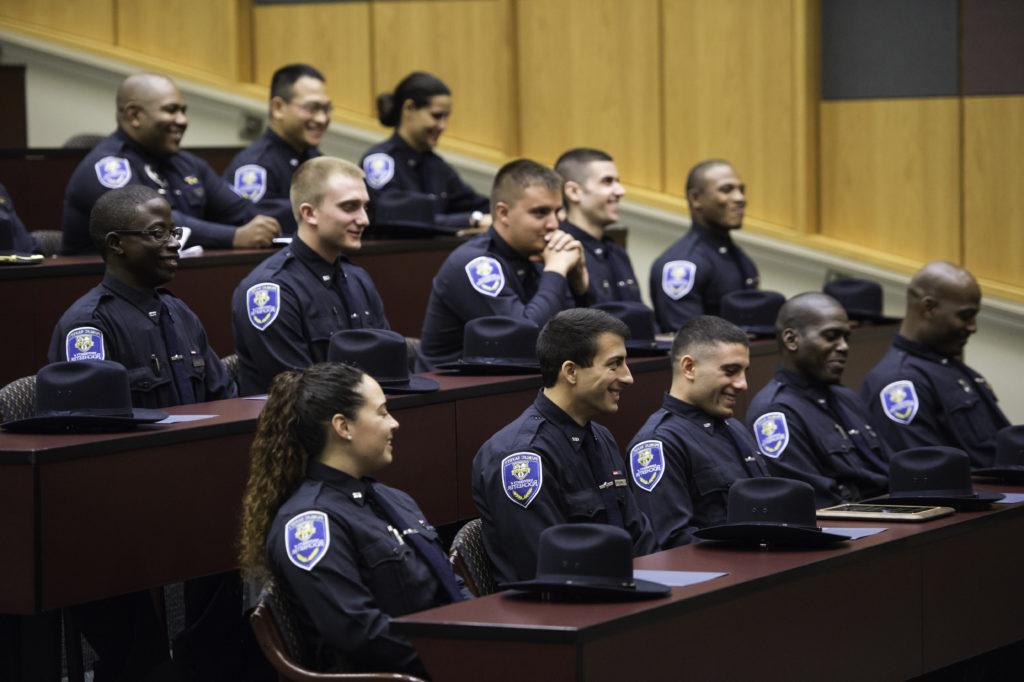Peace Officers
Extensive training program supports awareness
The Department of Public Safety is comprised of both Public Safety officers and peace officers. We pride ourselves on understanding our institution, providing a variety of services and maintaining safe campuses, so our community can learn, teach, heal, and work.

Not every Public Safety officer is a peace officer. A peace officer has the sworn authority to make arrests within University properties and areas that are immediately adjacent to University boundaries. Peace officers undergo additional extensive training—at least 600 hours of classroom and field training—in topics including NYS laws, diversity and disability awareness, de-escalation techniques, and dealing with emotionally distraught persons. Then, they can be sworn in as peace officers.
Request a safety training session
Public Safety offers departments and student groups training sessions on a range of topics.
